Unstoppable: The Indigenous women producing quinoa bars amid drought and the coronavirus pandemic in Bolivia
The landscape around Ucumasi village in Bolivia is desert-like. In this corner of Oruro department, a six-hour drive from La Paz, hailstorms and frost have compounded the effects of drought in recent years.
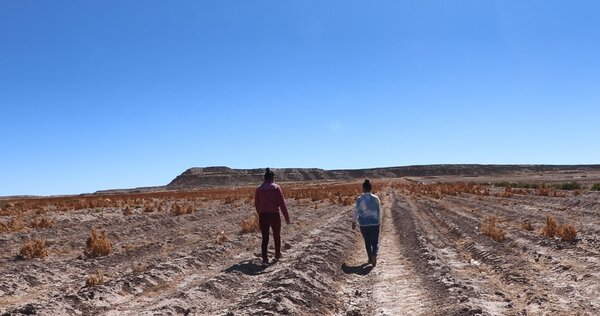
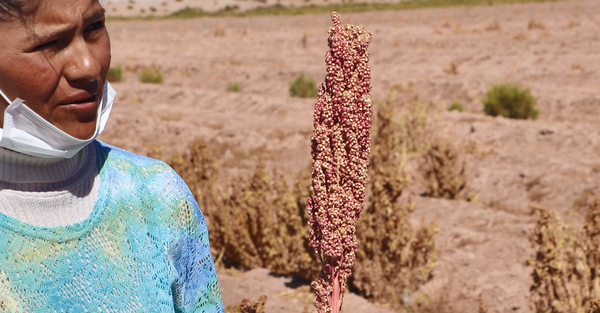
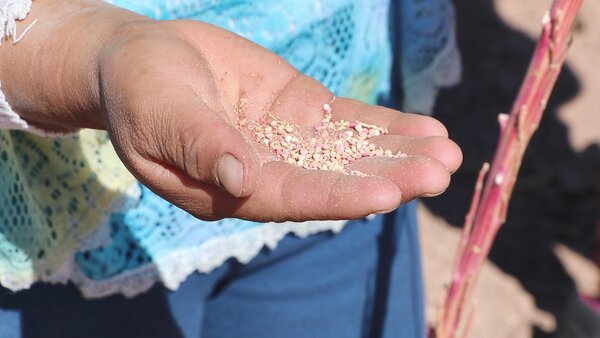
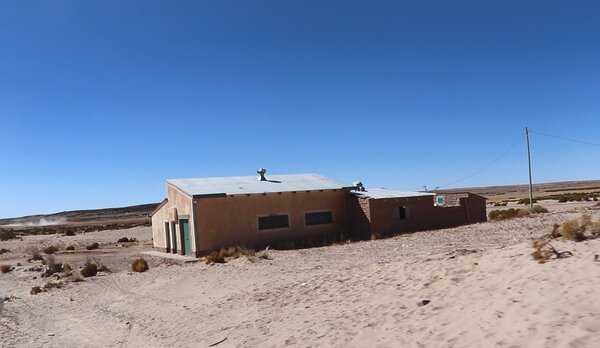
Traditional quinoa cultivation, llama farming and local livelihoods have all been damaged, as the effects of frost, water shortages, hailstorms and other climate-related events on thousands of families have brought the department to the brink of an official disaster being declared.
It’s 08:00 and, like every morning, Rosario Navia – known as Rosita in the village – arrives with her workmates at a small factory they have set up in a run-down building provided by the local authorities. This is where 21 Aymara Indigenous women, who make up the Asociación de Mujeres Productoras (AMPRODUC), produce quinoa bars.
While quinoa – considered a ‘super food’ for its nutritional properties – is a traditional crop in Oruro, processing it into bars is an innovative idea for the department. The tasty snacks produced by AMPRODUC are packed with proteins and vitamins, and can contribute to fighting child malnutrition, which reaches its highest peaks in rural areas of Bolivia.
Hand-made with love
Upon arrival, the women wash their hands, put on their white coats, caps and single-use gloves, and are ready for work.
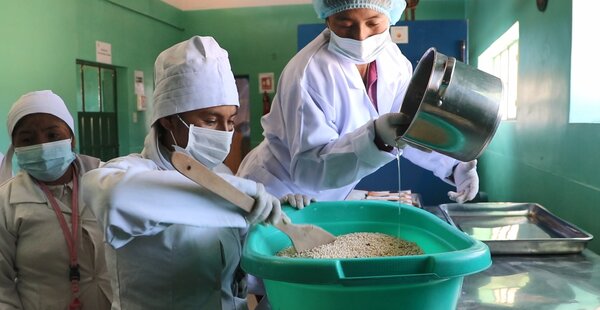
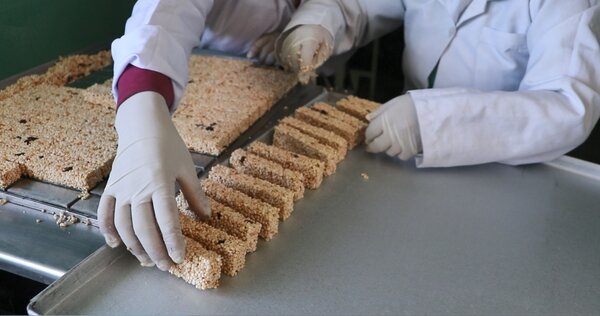
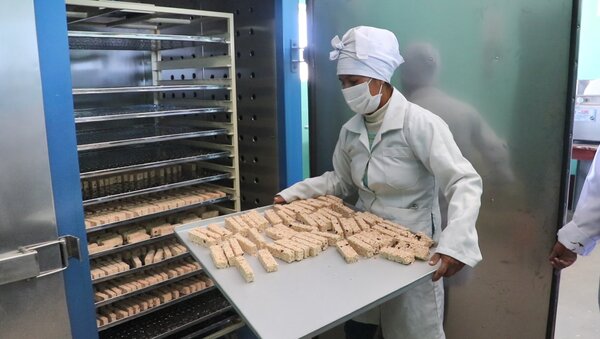
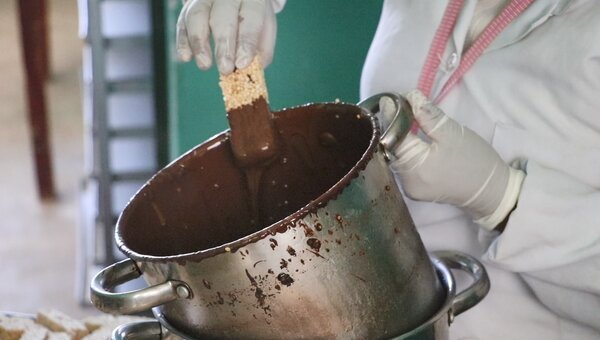
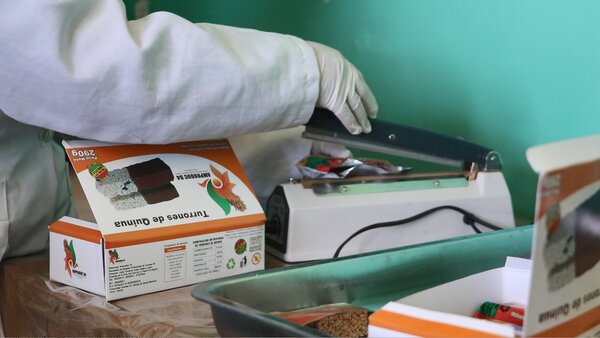
The process involves mixing processed quinoa grains with peanuts, raisins, almonds and honey, and pouring the mixture into a pedal-operated pressing and molding machine. This can be hard work, as it often involves pressing repeatedly on the pedal for the machine to churn out small rectangular bars. These are later put into a drier – donated by the World Food Programme (WFP) office in Bolivia – before being coated in chocolate and packed.
Nine years after starting its work, the small factory produces an average 3,000 bars per day. These are sold for 3 bolivianos (less than US$0.50) a piece.
Key ingredients: innovation, entrepreneurship and persistence
“I get emotional when I tell our story, because we went through so many hardships to keep AMPRODUC going,” says Rosita. She recalls how it all started in 2012, when she was only 14. That year, after attending training on the production process, she and other women from the community decided to get organized to try and make an income out of it.
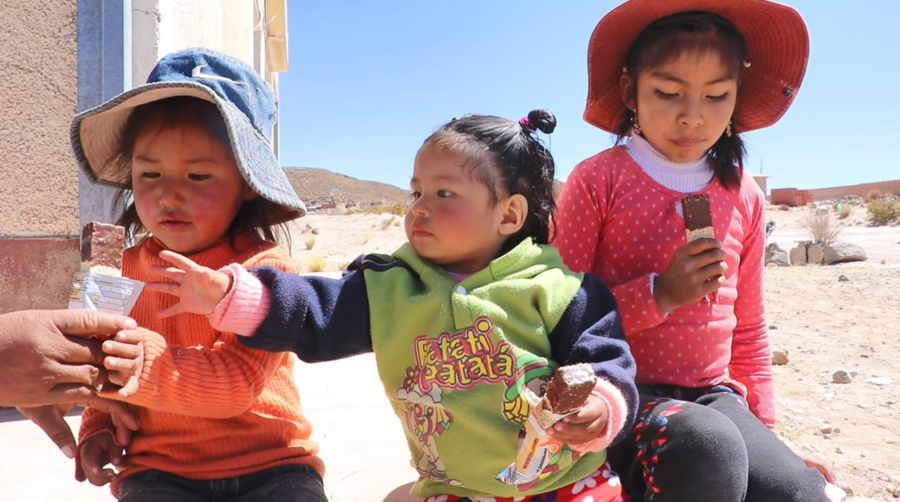
“We decided that each of us would contribute 200 bolivianos [US$29] to get started,” she says. Although this may not sound like much for many nowadays, it was a considerable amount at the time – and still is in many poor rural communities in Bolivia.
It was hard at the start. Some of the women soon got demoralized and asked to have their money back, but the ingredients – peanuts, raisins, almonds and honey – had already been bought.
The women decided to carry on, and were proved right: their set-up now benefits the whole community, generates an income for many families and helps to improve nutrition for children and adults alike. Inspired by their wives’ perseverance, the men of the village sometimes also chip in with the production.
New challenges, big dreams
In 2018, WFP Bolivia started supporting AMPRODUC through training and linking the women to markets, including schools in Oruro department where the bars could be distributed as snacks.
However, the COVID-19 pandemic and drought are making everything harder. Due to restrictions to contain the spread of the virus, Rosita and her associates have lost many of their regular customers and are now back to selling door to door in the village and other nearby locations. At the same time, an onset of drought meant that AMPRODUC members did not harvest enough quinoa to keep production going.
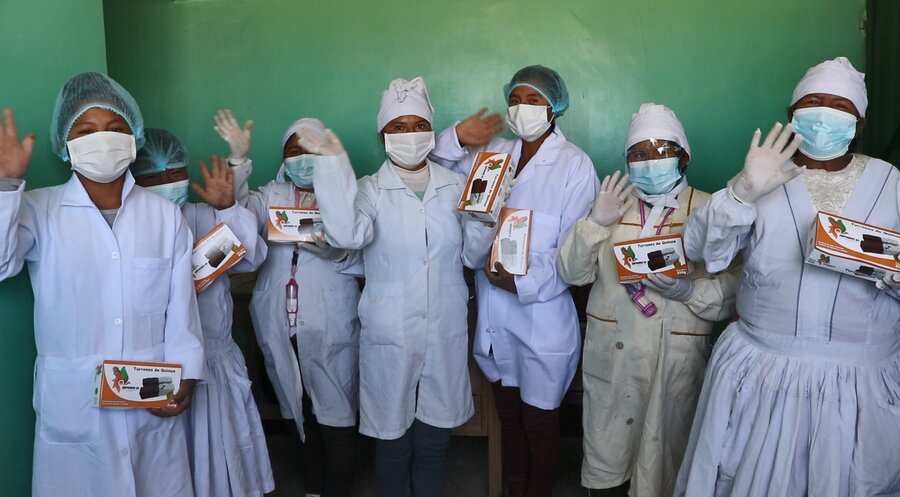
Despite all this, these strong women are not losing hope. They still have reserves from last year’s harvest, and are planning to buy quinoa from farmers in other aresa of Ucumasi, where the harvest was not so bad. WFP is also still supporting them in finding ways to strengthen sales – including reviving links to school feeding programmes and enabling sales in state-owned markets to boost demand and, in turn, production.
Having gone through so many hardships, Rosita and the other members of AMPRODUC dream big: “We are women and mothers, and we will carry on until the end. Our dream is to export our bars one day,” Rosita says, as her voice and expression match her determination not to let drought or the pandemic damage AMPRODUC’s aspirations.



